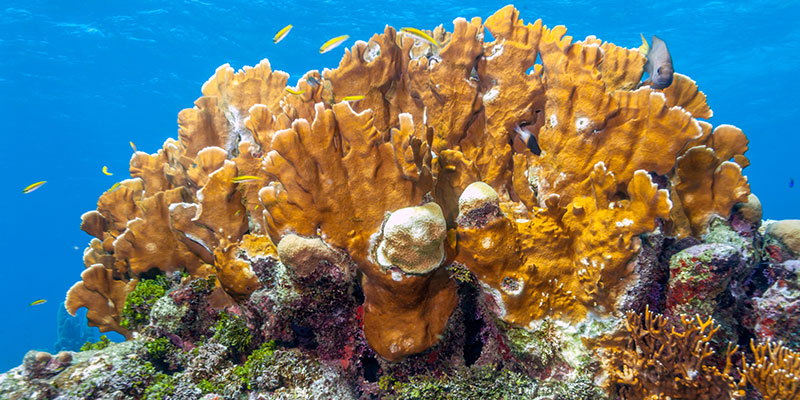A study by the Nature Conservancy found that activities adjacent to coral reefs bring an estimated $5.7 billion annually to the Caribbean, making it even more important to keep the waters pristine.
Sparkling water, clean sands, and vibrant reefs are what attract visitors
The Caribbean is one of the top tourist destinations in the world, and coastal economies are the most tourism-dependent. The star is sparkling seas, which support coral reefs, produce a bounty of seafood, and wash against white beaches.
Tourism accounts for more than 15% of gross domestic product in the Wider Caribbean Region, as well as 13% of employment. In 2021, tourism infused nearly $40 billion into the Caribbean region.
But many regions are discharging wastewater untreated into their main attraction. Investment in cleaning is essential to economic growth.
Untreated Wastewater Pollutes Ecosystems
Untreated wastewater discharge causes severe pollution of groundwater, soil, watersheds, and the sea. It degrades ecosystems critical to ecotourism and harms human health. And between 70% and 80% of wastewater flows into the Caribbean untreated.
Additionally, 70% of the population has no access to adequate sanitation or hygiene services. Insufficient policy, laws, regulatory frameworks, financial access, and awareness impede solutions.
The World Resources Institute studied wastewater discharges at several Caribbean sites. It found contaminated stormwater runoff coming from informal settlements; reef degradation from discharges; contamination of popular swimming, snorkeling, boating, and fishing sites; and health problems such as gastroenteritis and ear and eye infections linked to wastewater exposure.
Coral Reefs Are Sensitive to Wastewater
The importance of coral reefs, and their sensitivity to wastewater contamination, should not be underestimated. A study by the Nature Conservancy found that reef-adjacent activities bring an estimated $5.7 billion annually into the Caribbean from about 7.4 million visitors.
Reefs also form a natural buffer against waves, storms, and floods, increasing the resilience of Caribbean islands to extreme weather events.
A recent outbreak of stony coral tissue loss disease has decimated reefs from Florida to the Caribbean. Research has found that coastal reefs’ resistance to the disease has been lowered by runoff and pollution that introduces pathogens, sediments, and nutrients that are disease vectors. Research also suggests that attempts to save many reefs will fail without treatment to improve seawater quality.
Decentralized Treatment and Updated Financing
Old-fashioned thinking may be an obstacle to wastewater treatment solutions. Centralized infrastructure and traditional financing might not be the best fit for the Caribbean. Large, centralized treatment plants linked to distant communities can be expensive because of pipe costs alone. Smaller, modular units can be installed at the point of need, eliminating miles of pipe.
Modular units may also contain newer technologies, such as membrane aerated biofilm reactor (MABR), a modern version of biological treatment at the core of Fluence’s Aspiral™ line.
Updated financing models can deliver wastewater treatment with no upfront capital investment and bundled long-term operation and maintenance. Such financing models include public-private partnership, build-own-operate, and build-own-operate-transfer.
Aspiral™ modular packaged plants are scaled for islands, and their coated steel containers stand up to salty air and 150mph winds. Fluence’s Water Management Services can deliver wastewater treatment where it was never viable before. Contact our water experts. We’re standing by to discuss investment in Caribbean tourism.

